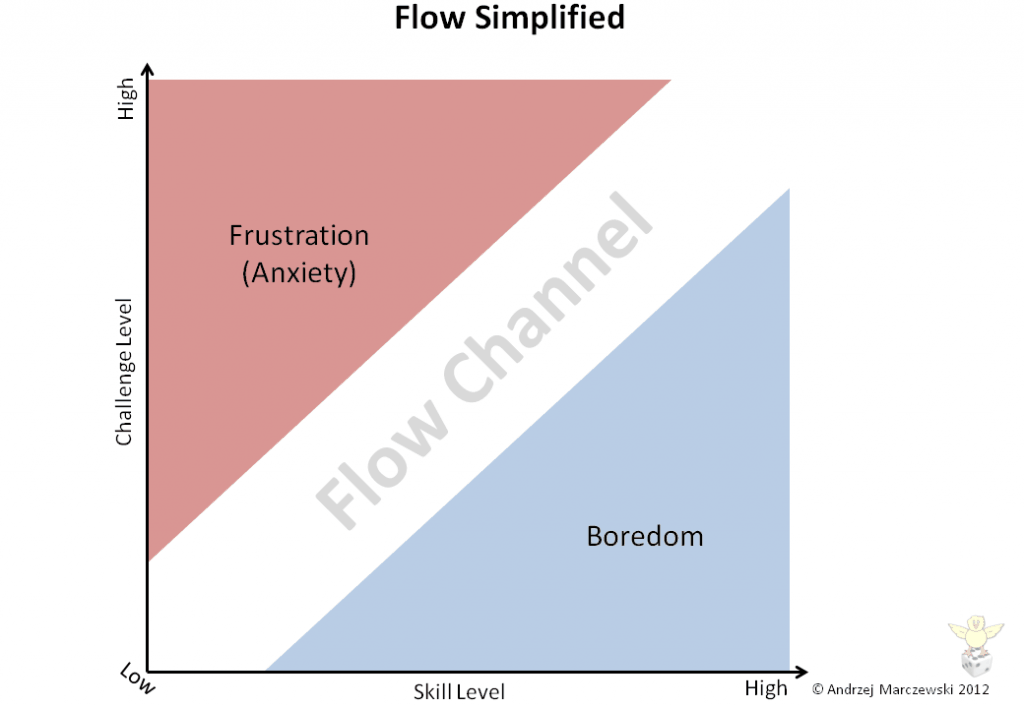
More Coming Soon!
According to Ralph Koster (video game legend), games are puzzles to be solved and provide lessons to be learned (or grokked.) This is where the notion of "fun" comes from: "Fun from games arises out of mastery," Koster writes, "It is the act of solving puzzles that makes games fun. In other words, with games, learning is the drug" (40).
Following this logic, the best games are those that have enough variables to keep the new data flowing in order for the brain to keep learning for as long as possible before the player stops playing. Tic-tac-toe, for example, with its limited amount of permutations, is easy to master, and so boredom sets in after a relatively low number of playthroughs. On the other hand, a complicated contemporary game has more variables, and thus provides more challenges and more fun for a longer period.
Koster, Jo Kim, Wright, and many others agree that a great game has to constantly exist in aplayer's flow state...
According to Will Wright (Sim City, Sims, Spore, etc), we cannot compare games to most other forms of pre-electronic games mediums. For example, in a movie, the primary emotional driver is empathy. In a video game, it's agency (autonomous control). Therefore, when a player is not allowed to perform an action they wish to perform within a game, the feeling is not boredom or a lull in the experience but rather sitting in a theatre and the movie screen suddenly goes black with no sound! That's what you create if the game can't keep moving!


(source: https://www.gamasutra.com/view/news/109886/Exclusive_Will_Wright__Video_Games_Close_To_Cambrian_Explosion_Of_Possibilities.php)